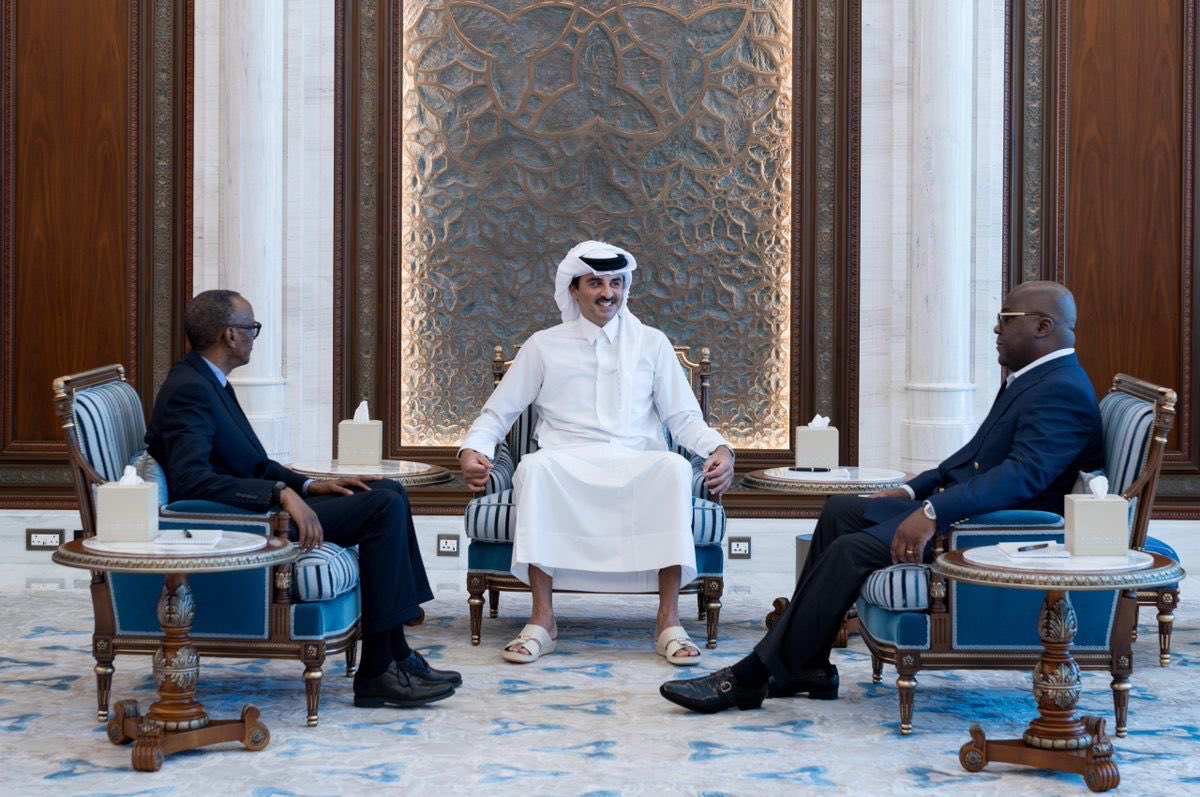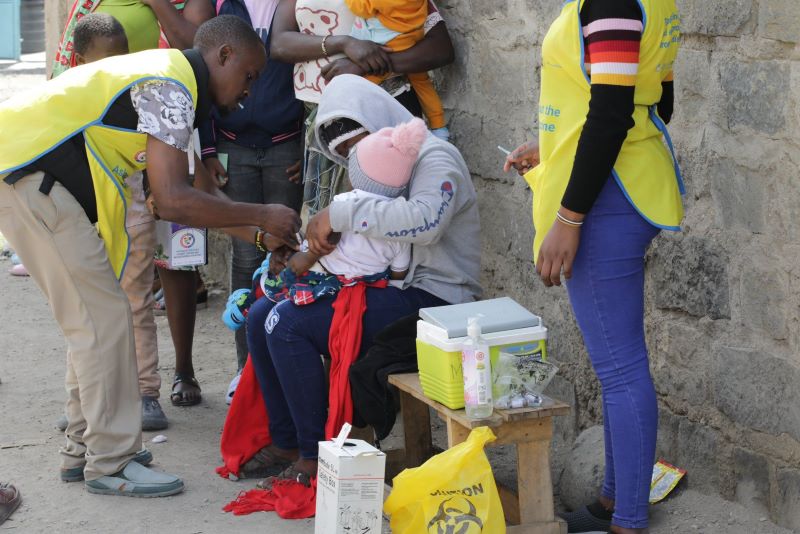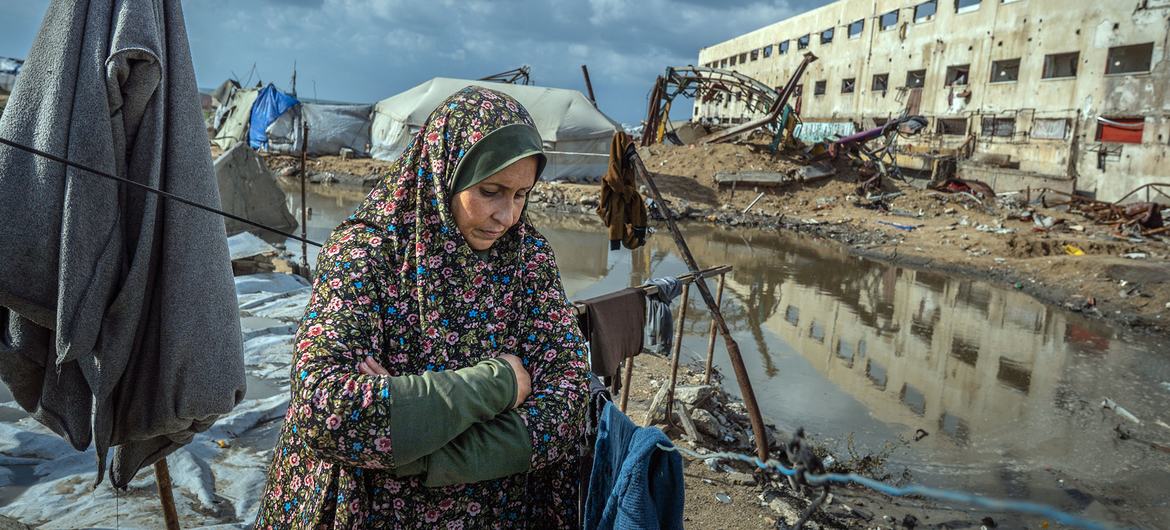From crime to service: How 'most feared' Pangani youth transformed their lives
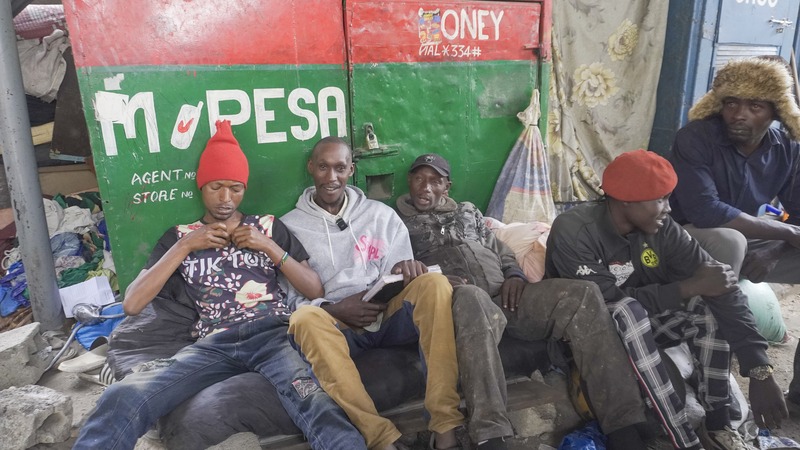
These young men were trapped in a vicious cycle of addiction and crime. The community was afraid of them. Law enforcement pursued them. They were shamed and written off as “lost causes”.
For many years, Hassan Ngatia and his crew were infamous throughout Pangani and California in Kamukunji Constituency. They abused drugs and engaged in petty crimes. They gathered in dusty street corners and back alleys, chewing miraa, smoking anything they could roll, drinking heavily, and abusing every substance they could find — from over-the-counter sedatives to synthetic drugs.
These young men were trapped in a vicious cycle of addiction and crime. The community was afraid of them. Law enforcement pursued them. They were shamed and written off as “lost causes”.
More To Read
- Man charged with schoolgirl’s murder shocks court, seeks plea deal
- NCIC warns of criminal gangs using social media to recruit, mobilise
- Report links corrupt officials to rising criminal networks in Kenya
- IG Douglas Kanja assures Kenyans of heightened security ahead of festive season
- Court allows police to detain four officers over shooting of colleague in Naivasha
- Four suspects arrested for defrauding man of Sh251,000 in fake SHA registration scheme
But something changed. One day, while sitting in their usual spot behind Pangani Maternity Hospital, Hassan and his close friends began to reflect on their future. They were tired — not just of the drugs or crime, but of being rejected and hunted. That day, they made a simple but powerful decision: “What if we did things differently? What if we tried to build something?”
And just like that, the Backyard Self-Help Group was born in 2017.
“We just used to sit around with nothing to do,” says Hassan, now the group’s secretary.
“One day, we decided to change. We used to be involved in theft, drugs and everything bad you can imagine. But we left crime behind and decided to become protectors of the same area we once terrorised.”
Turning the leaf
They began small, collecting rubbish and cleaning the very streets they once littered. Slowly, the community began to notice. Some were sceptical, others cautiously optimistic. The group started taking on minor security roles, helping residents feel safer, patrolling at night, and working with local leaders.
They formally registered and established ties with the chief and authorities in California Estate, Pumwani Ward.
“We committed to working with the authorities. If someone causes trouble or steals, we don’t beat them, we arrest them and take them to the police. We’ve ended mob justice because we’ve been educated, and we want to do things the right way.”
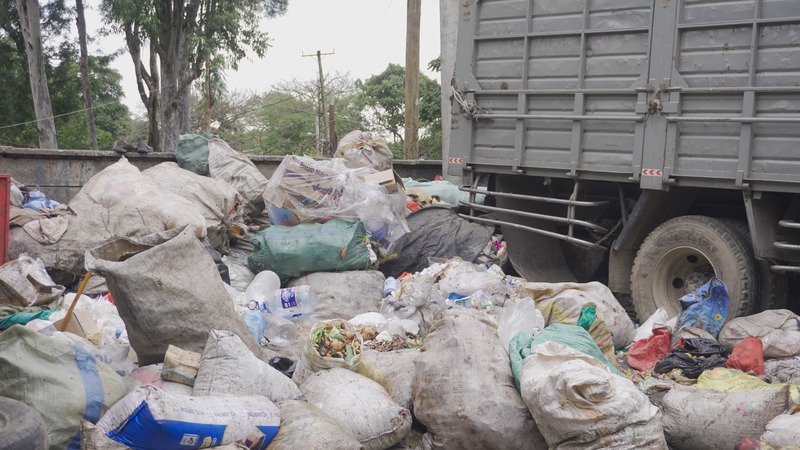 Garbage site in Pumwani. (Justine Ondieki)
Garbage site in Pumwani. (Justine Ondieki)
Once labelled criminals, the group has earned the community’s respect. Locals who once crossed the street to avoid them now greet them warmly and even seek their help.
Their name, Backyard, once referred to the place they loitered, but now symbolises a space of healing and transformation.
“Today, if you ask people in Pumwani about us, they won’t say we’re criminals,” Hassan says. “They’ll say we collect rubbish, keep the peace, and protect the neighbourhood. That means a lot to us.”
The group now has around 30 members, with 11 officially registered. Many were once heavily addicted or involved in crime. Today, they are fathers, husbands, and responsible citizens.
Martin Githinji, the group’s chairperson, speaks emotionally about their journey.
“No one wanted us. Most of us had no families and had lost all hope. But since we started this group, our lives have changed. We’ve reduced drug use significantly. Some of us have quit completely. And that’s something we’re proud of.”
At one point, the group even introduced a dog for security. Trained to track suspects, the dog has become something of a local legend.
“If a thief runs, we release the dog. People fear that, and it helps us maintain peace. But we don’t harm anyone. We just want a safe neighbourhood,” he explains.
The group has received support from organisations like the Undugu Society of Kenya, which has offered training, mentorship, and assistance with legal documentation. For many members, obtaining national ID cards was a game-changer.
“Before, we didn’t even have ID cards. We couldn’t vote, get jobs, or even open bank accounts. Now we feel human again.”
With proper identification, members have accessed vocational training. Some are now learning mechanics, others plumbing or electrical work. These are skills they hope to use to launch businesses.
“We want to rebrand. We don’t want to be seen only as garbage collectors. We want to be entrepreneurs, mechanics, electricians — people with dignity and purpose,” adds Hassan.
Despite their progress, they face challenges like limited funding, lingering stigma, and the uphill battle of reintegration. But hope drives them forward.
“We’re asking the government and society not to ignore young people trying to lift themselves,” Martin pleads. “With support, we can go far. We want training centres in the slums and opportunities to learn and grow. That would change everything.”
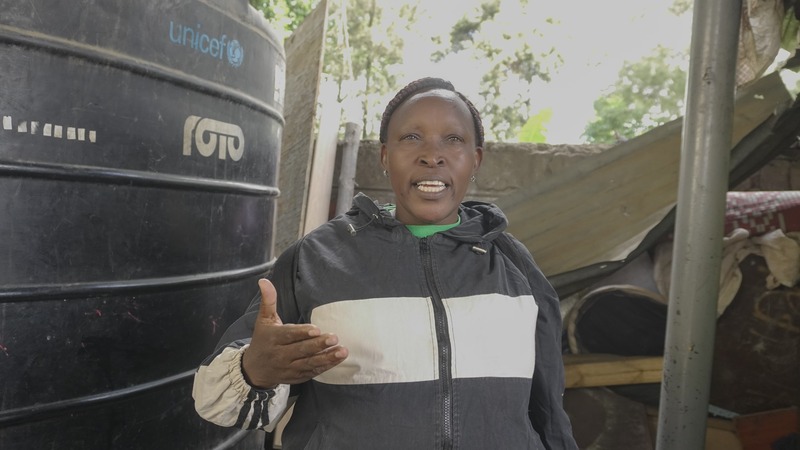 Jecinter Kinyanjui, a community officer from the Undugu Society of Kenya. (Justine Ondieki)
Jecinter Kinyanjui, a community officer from the Undugu Society of Kenya. (Justine Ondieki)
Training opportunities
David Macharia, another member, shares his personal transformation: “I used to smoke gum, msii (glue), and all sorts of things. But after the training and support, I stopped. Now I’m training as a mechanic. That used to be a dream, now it’s reality.”
He now lives with his family, pays rent, and focuses on building a better future.
“To get this opportunity, I had to quit drugs. My life has changed. I feel like I have a future. And I want to tell other young men — it’s possible to change. You just need to believe in yourself.”
Jecinter Kinyanjui, a community officer from the Undugu Society of Kenya, has worked closely with the group since its inception. She visits the members regularly, offering mentorship, life skills training, and a listening ear. Her approach is grounded in empathy, recognising that many of these young people were not inherently criminal, but lacked opportunity and support.
“We visit them twice a week to understand their challenges, listen to their stories, and involve them in training,” Kinyanjui explains. “That consistent engagement has helped shift their mindset. Once they realise someone believes in them, they begin to believe in themselves.”
Working alongside local authorities, Kinyanjui has helped amplify the group’s voice, advocate for their needs, and include them in development initiatives. One of her most transformative contributions was facilitating the acquisition of national IDs, giving members legal recognition, access to services, and a sense of identity.
Having supported more than 50 similar groups, she sees a common truth: when young people are offered real opportunities, many choose reform.
“What they need is opportunity, a door to walk through. When that’s provided, we see real, lasting change.”
Her pride in the Backyard Self-Help Group is unmistakable. Their journey is a shining example of what happens when trust and support replace fear and exclusion.
The Backyard Self-Help Group is living proof that even in the darkest corners, light can emerge. It’s a blueprint for urban renewal through grassroots transformation. These young men, once dismissed as thugs, are now guardians, leaders, and agents of peace.
Top Stories Today


